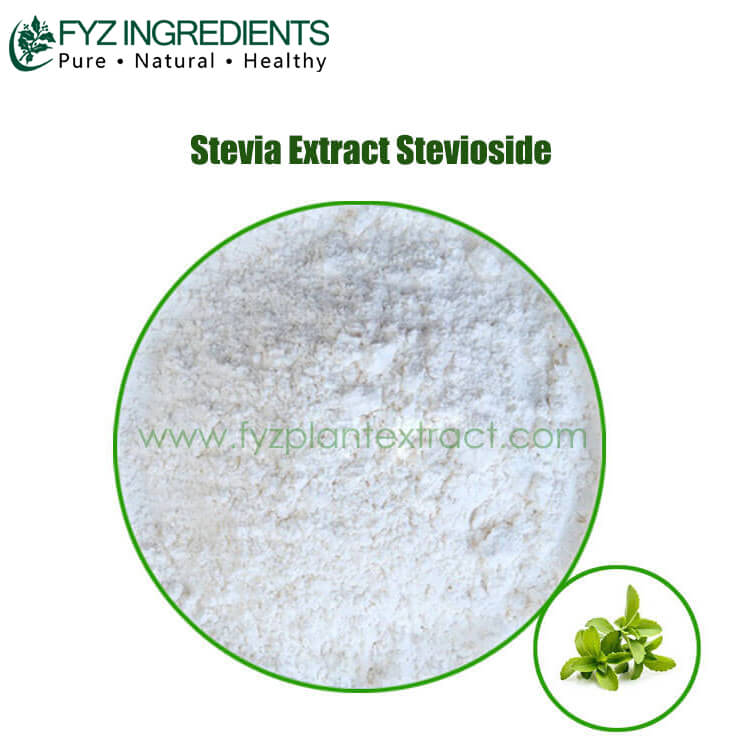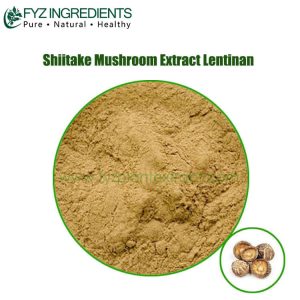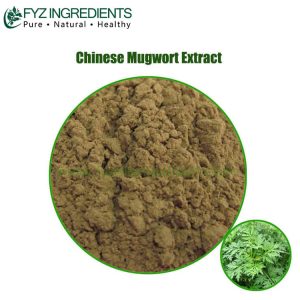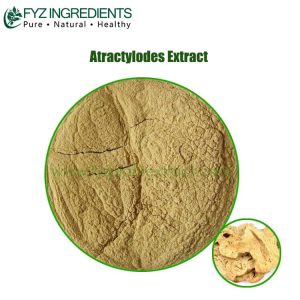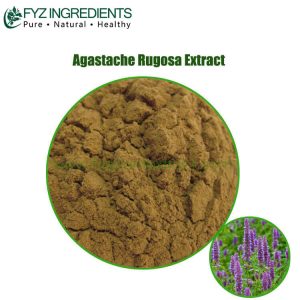What is Stevia Extract Stevioside and Rebaudioside A?
Stevia is cultivated in many countries, but China is the leading exporter of stevia extract products especially stevioside and rebaudioside A currently. Stevia provides an important role in biodiversity due to how little land is required to grow it, allowing farmers to diversify their crops.
Unlike commodity crops, stevia is grown on smaller plots of land and provides supplemental income to more commonplace crops.
As stevia is intensely sweet, it typically requires only one-fifth of the land and much less water to provide the same amount of sweetness as other mainstream sweeteners.
The sweetness of the stevia leaves is caused by eight glycosides contained within them. These glycosides are stevioside, rebaudioside A, C, D, E, and F, steviolbioside, and glucoside A. Stevioside is the most abundant of these components; the leaves of some cultures contain up to 18 percent stevioside.
Some of the common and trade names for stevia sweeteners are Enliten, PureVia, Rebaudioside A/Reb A, Rebaudioside B, Rebaudioside C, Rebaudioside D, Rebiana, Stevia, Steviacane, Steviol Glycosides, Stevioside, Stevia Extract In The Raw, and Sweet Leaf.
Health Benefits of Stevia Extract Stevioside and Rebaudioside A
Stevia Extract Steviol glycosides and Rebaudioside A have zero calories. Stevia-based tabletop sweeteners can have zero or minimal calories per serving, depending upon the other food ingredients with which they are combined. These factors could have a positive effect on those looking to control weight or manage diabetes. Below, we take a look at the possible health benefits of stevia.
1) Diabetes
Research has shown that stevia sweeteners do not contribute calories or carbohydrates to the diet and do not affect blood glucose or insulin response, which allows people with diabetes to consume a wider variety of foods and comply with a healthful meal plan. Additionally, a position paper on nutritive and non-nutritive sweeteners from the Academy of Nutrition and Dietetics reviewed five randomized controlled trials examining the effects of stevia compared with placebos on metabolic outcomes. The studies reported minimal to no effects on blood glucose, insulin levels, hypertension, and body weight. In one study showing minimal effects, subjects with type 2 diabetes reported reduced postprandial blood glucose and glucagon response after a test meal of stevia versus placebo.
2) Weight control
The causes of overweight and obesity are multifactorial and include factors such as physical inactivity, prolonged sitting, and increased intake of energy-dense foods that are high in fat and added sugars. The intake of added sugars has been shown to contribute an average of 16 percent of the total calories in the American diet and has been linked to weight gain and adverse effects on glycemic control. Plant-based, zero-calorie stevia can be part of a well-balanced diet to help reduce energy intake without sacrificing taste.
3) Metabolism
Steviol glycosides are poorly absorbed in the body and pass through the upper gastrointestinal tract fully intact. Once steviol glycosides reach the colon, gut bacteria convert steviol glycosides into steviol. Steviol is then metabolized by the liver before being excreted in the urine. Research has shown that there is no accumulation of stevia (or any byproduct of stevia) in the body during metabolism. It is because of this poor absorption in the digestive tract that stevia has zero calories and does not raise blood glucose or insulin levels when digested.
4) Pancreatic cancer
Stevia plant has many sterols and antioxidant compounds including kaempferol, quercetin, chlorogenic acid, caffeic acid, isoquercitrin, and isosteviol. Studies have found that kaempferol can reduce the risk of pancreatic cancer by 23 percent.
5) Blood pressure
Certain glycosides in stevia extract have been found to dilate blood vessels, increase sodium excretion, and urine output. In higher doses, stevia could potentially help lower blood pressure.
The plant may have cardiotonic actions, which normalize blood pressure and regulate heartbeat.
6) Special populations
Regulatory health agencies around the world have approved high purity stevia leaf extract for safe use. This includes special populations such as pregnant and nursing women, children, and people with allergies or diabetes.
7) Children
Foods and beverages containing stevia can play an important role in decreasing calories from unwanted sweeteners in children’s diets. There are now thousands of products containing naturally-sourced stevia on the market, ranging from salad dressing to snack bars, which allow children to consume foods and beverages that taste sweet without added calories.
Multiple global regulatory organizations, including the Food and Agriculture Organization of the United Nations (UN), the World Health Organization (WHO), and the Food & Drug Administration (FDA) have determined that high purity stevia extract is safe for consumption by the general population, including children, when consumed within the recommended levels.
8) Allergies
In 2010, the European Food Safety Committee (EFSA) reviewed the literature to determine if there was any cause for concern regarding the potential for allergic reactions to the stevia plant. The reviewers concluded that “steviol glycosides are not reactive and are not metabolized to reactive compounds, therefore, it is unlikely that the steviol glycosides under evaluation should cause by themselves allergic reactions when consumed in foods.”
Dosage of Stevia Extract Stevioside and Rebaudioside A
Stevia sweeteners represent about 40 percent of the sugar replacement sweeteners used in Japan. For many years, the FDA banned the use of stevia as a sweetener in soft drinks and only allowed it to be sold as a dietary supplement. At that time, stevia carried a recommended dosage of up to 2 mg per kilogram of body weight daily. In 2008, the World Health Organization completed a substantial safety study on steviol glycosides and determined that they are safe to eat in volumes up to 4 mg per kilogram of body weight per day.
Flowchart of Production

Package and Shipping
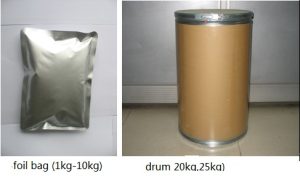
- By Express: Suitable for under 50kg, 5-10 days
- By Air: Suitable for more than 50kg, 7-15 days
- By Sea: Suitable for more than 500kg, 15-45days
Why Choose FYZ Stevia Extract Stevioside Rebaudioside A?
- FYZ is a professional Stevia Extract Stevioside Rebaudioside A manufacturer in China, provides private labels service.
- FREE SAMPLE (5-10g) for detection, if you need more, please contact us.
- Fast delivery by DHL/FedEx, air as your requirement.
- All of our products from nature, no additive.
- Money refund policy.

